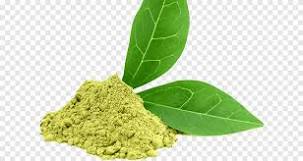Laser Treatment for Pigmentation and Dark Spots
Pigmentation and dark spots often stand as stubborn obstacles, casting shadows on our complexion and confidence. However, with advancements in skincare technology, laser treatment has emerged as a powerful ally in the battle against these common concerns.
Pigmentation disorders, such as hyperpigmentation and melasma, result from the overproduction or uneven distribution of melanin, the pigment responsible for skin color. These conditions can be triggered by various factors, including sun exposure, hormonal changes, inflammation, and genetics. Dark spots, often referred to as sunspots or age spots, typically arise from cumulative sun damage over time, manifesting as localized areas of increased pigmentation on the skin's surface.
Laser treatment for pigmentation and dark spots harnesses the power of concentrated light energy to selectively target and break down excess melanin deposits in the skin. This process, known as selective photothermolysis, involves using specific wavelengths of light that are absorbed by the melanin pigment while sparing the surrounding tissue.
When it comes to addressing dark spots, it's essential to establish a consistent skincare routine that includes gentle yet effective treatments. Ingredients such as lactic acid, a mild alpha hydroxy acid (AHA), can help exfoliate the skin's surface, fade pigmentation, and promote cell turnover, resulting in a brighter, more even complexion. Incorporating products containing lactic acid into your daily skincare regimen can gradually improve the appearance of dark spots over time.
In addition to topical treatments, there are various home remedies and DIY face masks that can help treat hyperpigmentation and lighten dark spots. For example, apple cider vinegar, known for its natural acidic properties, can be diluted with water and applied to the affected areas using a cotton ball. Leave the solution on for 10 to 15 minutes before rinsing it off with water to help fade pigmented areas gradually.
For more stubborn dark spots or patches of skin pigmentation, professional treatments such as chemical peels may be recommended to accelerate the skin's exfoliation process and reveal brighter, clearer skin underneath. During a chemical peel, a solution containing exfoliating agents such as glycolic acid or salicylic acid is applied to the skin, causing the top layer to peel off and revealing fresher, more evenly pigmented skin beneath.
It's important to note that while these treatments can be effective in fading dark spots, they may also increase the skin's sensitivity to sunlight. Therefore, it's crucial to apply sunscreen daily and avoid prolonged sun exposure to protect the skin and prevent further pigmentation issues.
At Dermasolutions, we offer a range of professional skincare treatments tailored to suit different skin tones and concerns. Whether you're looking to lighten age spots, fade dark patches, or achieve a more even complexion overall, our experienced skincare professionals are here to help you achieve your skincare goals safely and effectively.
Don't let dark spots dull your confidence. Contact Dermasolutions today to schedule a consultation and learn more about our customized treatment options for dark spot removal and skin pigmentation correction.
While laser treatment for pigmentation and dark spots offers promising results, it's essential to approach the procedure with realistic expectations and understand that multiple sessions may be required to achieve optimal outcomes. Additionally, proper sun protection and skincare maintenance are crucial for prolonging the benefits of laser therapy and preventing future pigmentation issues.
At Dermasolutions, our team of experienced dermatologists provides a range of safe and effective treatments for dark spot removal.
We use the latest technology and techniques to ensure optimal results with minimal downtime.
While several of the remedies we share here are anecdotal,
some research suggests their main ingredients work on skin pigmentation.
 Apple cider vinegar contains acetic acid, which researchTrusted Source shows may lighten pigmentation.
To use this remedy:
Apple cider vinegar contains acetic acid, which researchTrusted Source shows may lighten pigmentation.
To use this remedy:
 Aloe vera contains aloin, a natural depigmenting compound that has been shown to lighten skin and work effectively
as a nontoxic hyperpigmentation treatment. To use :
Aloe vera contains aloin, a natural depigmenting compound that has been shown to lighten skin and work effectively
as a nontoxic hyperpigmentation treatment. To use :


 To try your own version of this hyperpigmentation treatment at home:
To try your own version of this hyperpigmentation treatment at home:
There are several medical treatment options available if home remedies for pigmentation fail to give you the results you want. These include:
In conclusion, dark spots or pigmentation can be a cosmetic concern, but there are several natural and effective pigmentation treatments that you can try at home. If you have severe or persistent pigmentation, you may need professional treatment such as chemical peels, microdermabrasion, or laser treatment. Consult a dermatologist to determine the best treatment for your skin type and condition.
Pigmentation disorders, such as hyperpigmentation and melasma, result from the overproduction or uneven distribution of melanin, the pigment responsible for skin color. These conditions can be triggered by various factors, including sun exposure, hormonal changes, inflammation, and genetics. Dark spots, often referred to as sunspots or age spots, typically arise from cumulative sun damage over time, manifesting as localized areas of increased pigmentation on the skin's surface.
Laser treatment for pigmentation and dark spots harnesses the power of concentrated light energy to selectively target and break down excess melanin deposits in the skin. This process, known as selective photothermolysis, involves using specific wavelengths of light that are absorbed by the melanin pigment while sparing the surrounding tissue.
When it comes to addressing dark spots, it's essential to establish a consistent skincare routine that includes gentle yet effective treatments. Ingredients such as lactic acid, a mild alpha hydroxy acid (AHA), can help exfoliate the skin's surface, fade pigmentation, and promote cell turnover, resulting in a brighter, more even complexion. Incorporating products containing lactic acid into your daily skincare regimen can gradually improve the appearance of dark spots over time.
In addition to topical treatments, there are various home remedies and DIY face masks that can help treat hyperpigmentation and lighten dark spots. For example, apple cider vinegar, known for its natural acidic properties, can be diluted with water and applied to the affected areas using a cotton ball. Leave the solution on for 10 to 15 minutes before rinsing it off with water to help fade pigmented areas gradually.
For more stubborn dark spots or patches of skin pigmentation, professional treatments such as chemical peels may be recommended to accelerate the skin's exfoliation process and reveal brighter, clearer skin underneath. During a chemical peel, a solution containing exfoliating agents such as glycolic acid or salicylic acid is applied to the skin, causing the top layer to peel off and revealing fresher, more evenly pigmented skin beneath.
It's important to note that while these treatments can be effective in fading dark spots, they may also increase the skin's sensitivity to sunlight. Therefore, it's crucial to apply sunscreen daily and avoid prolonged sun exposure to protect the skin and prevent further pigmentation issues.
At Dermasolutions, we offer a range of professional skincare treatments tailored to suit different skin tones and concerns. Whether you're looking to lighten age spots, fade dark patches, or achieve a more even complexion overall, our experienced skincare professionals are here to help you achieve your skincare goals safely and effectively.
Don't let dark spots dull your confidence. Contact Dermasolutions today to schedule a consultation and learn more about our customized treatment options for dark spot removal and skin pigmentation correction.
Laser Treatment for Pigmentation
There are several types of lasers used in the treatment of pigmentation and dark spots, including Q-switched lasers, fractional lasers, and intense pulsed light (IPL) devices. Each type of laser operates on different principles and targets specific types of pigmentation, making it essential to consult with a qualified dermatologist or skincare professional to determine the most suitable option for your unique needs.While laser treatment for pigmentation and dark spots offers promising results, it's essential to approach the procedure with realistic expectations and understand that multiple sessions may be required to achieve optimal outcomes. Additionally, proper sun protection and skincare maintenance are crucial for prolonging the benefits of laser therapy and preventing future pigmentation issues.
Skin Hyperpigmentation
Dark spots or pigmentation can occur due to various reasons, such as sun damage, hormonal changes, aging, and skin trauma. While these spots are harmless, they can be a cosmetic concern and affect one's confidence. Fortunately, there are several natural and effective pigmentation treatments that you can try at home. Here are some of the best ways to remove dark spots and achieve an even complexion.At Dermasolutions, our team of experienced dermatologists provides a range of safe and effective treatments for dark spot removal.
We use the latest technology and techniques to ensure optimal results with minimal downtime.
Pigmentation treatment at home
There are several ways that you can treat hyperpigmentation at home.While several of the remedies we share here are anecdotal,
some research suggests their main ingredients work on skin pigmentation.
Apple cider vinegar
 Apple cider vinegar contains acetic acid, which researchTrusted Source shows may lighten pigmentation.
To use this remedy:
Apple cider vinegar contains acetic acid, which researchTrusted Source shows may lighten pigmentation.
To use this remedy:
- Combine equal parts apple cider vinegar and water in a container.
- Apply to your dark patches and leave on two to three minutes.
- Rinse using lukewarm water.
- Repeat twice daily you achieve the results you desire.
Aloe vera
 Aloe vera contains aloin, a natural depigmenting compound that has been shown to lighten skin and work effectively
as a nontoxic hyperpigmentation treatment. To use :
Aloe vera contains aloin, a natural depigmenting compound that has been shown to lighten skin and work effectively
as a nontoxic hyperpigmentation treatment. To use :- Apply pure aloe vera gel to pigmented areas before bedtime.
- Rinse using warm water the next morning.
- Repeat daily until your skin color improves.
Red Onion and Lemmon Juice

- Red Onion Juice - Applying red onion juice directly to the affected area can help in reducing the appearance of hyperpigmentation.
- Red Onion and Honey Mask - Mixing red onion juice with honey creates a mask that can be applied to the skin.
This mixture may help in reducing dark spots and brightening the skin. - Red Onion and Lemon Juice - Mixing red onion juice with lemon juice can help in lightening hyperpigmented skin.
Lemon juice has natural bleaching properties and when combined with red onion, can work effectively in reducing hyperpigmentation.
Green tea extract

- Green tea extract is known to have several benefits for the skin, including reducing hyperpigmentation.
- Topical application - Green tea extract can be found in various skincare products such as creams, serums, and masks. These products can be applied directly to the affected areas
- DIY face masks - Mixing green tea extract with other ingredients such as honey can create a face mask that can be applied to the skin
- Oral supplementation - Drinking green tea can also help in reducing hyperpigmentation from the inside out.
Black tea water
 To try your own version of this hyperpigmentation treatment at home:
To try your own version of this hyperpigmentation treatment at home:
- Add a tablespoon of fresh black tea leaves to a cup of boiling distilled water.
- Steep for two hours and strain to remove the leaves.
- Soak a cotton ball in the tea water and apply to areas of hyperpigmentation, twice a day.
- Repeat every day for six days a week, over four weeks.
Medical hyperpigmentation treatment
Depending on the cause of your hyperpigmentation, treatment may involve addressing an underlying medical condition or stopping a medication.There are several medical treatment options available if home remedies for pigmentation fail to give you the results you want. These include:
- Chemical Peels: Chemical peels involve applying a chemical solution on the skin to exfoliate the top layer of the skin and reduce pigmentation. It is an effective way to treat sun damage, age spots, and melasma.
- Microdermabrasion: Microdermabrasion is a non-invasive treatment that involves using a device to exfoliate the skin and remove the top layer of dead skin cells. It can help to reduce pigmentation and improve the overall texture of the skin.
- Laser Treatment: Laser treatment is a popular pigmentation treatment that involves using a beam of light to target the melanin in the skin and break it down. It is an effective way to treat stubborn pigmentation and achieve an even complexion.
In conclusion, dark spots or pigmentation can be a cosmetic concern, but there are several natural and effective pigmentation treatments that you can try at home. If you have severe or persistent pigmentation, you may need professional treatment such as chemical peels, microdermabrasion, or laser treatment. Consult a dermatologist to determine the best treatment for your skin type and condition.






